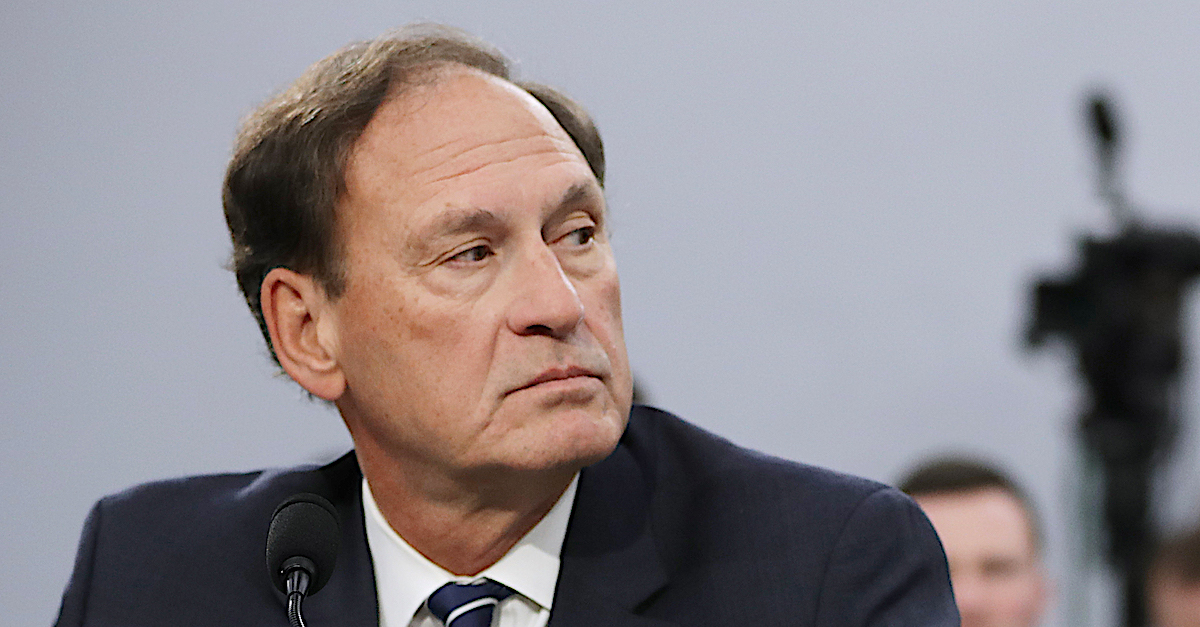
The Trump administration filed a last-ditch petition with the U.S. Supreme Court on Tuesday in order to force women into visiting a medical provider before they can obtain abortion drug RU-486 (mifepristone).
This is the second time the outgoing administration has asked the nation’s high court to reinstate the policy, which lower courts have repeatedly rejected because they found that enforcing the administrative rule would unnecessarily expose abortion patients to the risk of contracting the coronavirus (COVID-19).
U.S. District Judge Theodore Chuang suspended the U.S. Food and Drug Administration’s (FDA) “in-person requirements” rule–which held that mifepristone “must be dispensed in person after the patient has signed a Patient Agreement Form”–due to public health concerns in an initial ruling over the summer which held that the FDA’s rule was “a serious burden to many abortion patients” and an “infringement on the right to an abortion.”
In early October, the Supreme Court declined to consider the Trump administration’s original petition on the merits–instead issuing an order in abeyance which essentially hit pause on the controversy so that the district court could consider new information and potentially limit the scope of the nationwide injunction or rescind it altogether.
Last week, Judge Chuang considered that new information and found it somewhat lacking and unconvincing.
The Trump administration argued that “changes to public health restrictions and guidance in [various] states during the COVID-19 pandemic” meant the threat of COVID-19 transmission had subsided enough for the government to force women into obtaining in-person consultations before they could access the medical abortion drug. The court noted, however, that the threat of COVID-19 transmission is actually stronger than ever–prompting the Tuesday petition.
From that filing [emphasis in original]:
The district court adhered to its view that a nationwide preliminary injunction is warranted, despite newly available evidence showing that in states where requirements of in-person visits have remained in effect as a matter of state law, the number of abortions provided during the pandemic has in fact increased as compared to the equivalent period in 2019.
In other words, acting Solicitor General Jeffrey B. Wall and the Trump administration are now attempting to shift the goal posts and tenor of their argument since the prior claim that public health in general has improved failed to provide the relief they requested.
Instead of arguing that unsupportable point, Wall and the FDA are now hinging their bets on the separate-but-related claim that women are still getting abortions in states that maintain their own “in-person requirement” rule.
“That data reinforces what the government’s earlier filings explained: continued enforcement of FDA’s two-decade-old safety requirement during the pandemic does not create a substantial burden on abortion access, and is thus constitutional [under the relevant precedential framework],” the second petition argues. “The evidentiary proceedings this court requested have made the district court’s earlier error especially stark, and highlight the continuing need for relief from this court.”
This new permutation of the administration’s argument is likely to find at least some reception among the conservative-dominated Supreme Court. Chief Justice John Roberts was responsible for the original hiatus order. Meanwhile, archconservative Justices Clarence Thomas and Samuel Alito flipped out, saying that the court’s brief pause on the interlocutory appeal was giving Judge Chuang an excuse “for expanding the abortion right recognized in Roe v. Wade.”
Ear to the ground, Wall’s brief favorably cites Alito’s dissent:
The district court’s preliminary injunction is preventing FDA from enforcing important, longstanding safety requirements that were adopted in 2000 and that, “[o]ver the course of four presidential administrations, the FDA * * * has not found it appropriate to remove.” 10/8/20 Sup. Ct. Order 4 (Alito, J., dissenting). A stay of the district court’s nationwide preliminary injunction therefore would have been warranted even without the additional proceedings following this Court’s abeyance Order.
Civil rights advocates were appalled at the latest effort.
“COVID-19 is wreaking devastation across the nation, especially in communities of color,” the American Civil Liberties Union said on Tuesday in response to the new petition. “The Supreme Court should not give in to the Trump administration’s shameless campaign to punish and endanger people who need abortion care during the pandemic.”
[image via Chip Somodevilla/Getty Images]